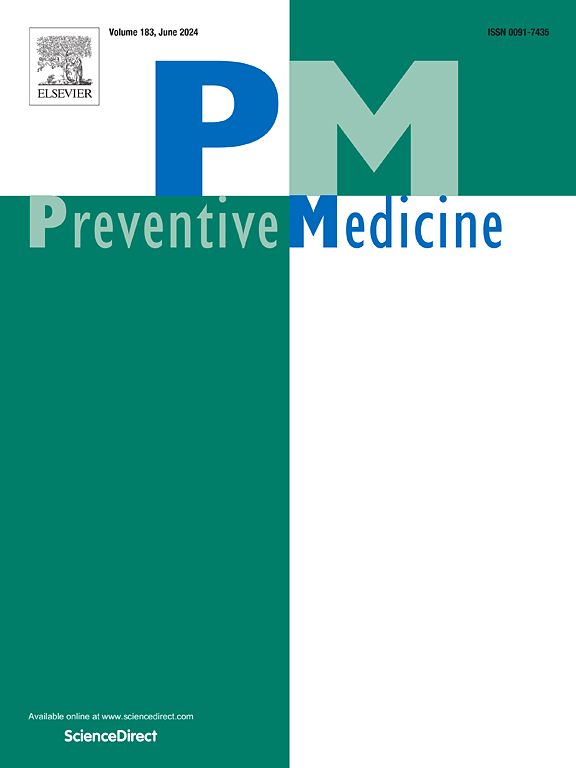美国性取向导致的食品安全不平等
IF 3.2
2区 医学
Q1 MEDICINE, GENERAL & INTERNAL
引用次数: 0
摘要
目的确定性少数群体(男同性恋、女同性恋、双性恋或其他[LGB+]性取向)身份是否独立导致粮食不安全,同时考虑种族、教育、就业、补充营养援助计划(SNAP)参与和精神疾病等其他社会健康驱动因素。方法对2019-2023年全国健康访谈调查进行多元logistic回归,以确定LGB+身份与30天食品安全量表反应之间的关系。结果我们通过加权抽样纳入130,656名参与者,代表235,728,318名美国人。在符合条件的人群中,LGB+和异性恋个体在SNAP使用方面没有差异(优势比:1.12,95%可信区间:0.97-1.30)。然而,即使在调整了SDoH和精神疾病之后,LGB+个体的食物安全非常低的几率(95%置信区间:1.31-1.79)高出1.53倍。尽管有类似的SNAP招募,LGB+个体仍然不成比例地保持粮食不安全,这表明没有通过联邦食品援助计划解决的结构性或系统性障碍导致风险升高。本文章由计算机程序翻译,如有差异,请以英文原文为准。
Inequities in food security by sexual orientation in the United States
Objective
To determine if sexual minority (gay, lesbian, bisexual, or another [LGB+] sexual orientation) identity independently contributes to food insecurity while accounting for other social drivers of health (SDoH) like race, education, employment, supplemental nutrition assistance program (SNAP) participation, and mental illness.
Methods
We performed multivariate logistic regression of 2019–2023 National Health Interview Surveys to determine any relationship between LGB+ identity and 30-day food security scale responses.
Results
We included 130,656 participants, representing 235,728,318 Americans by weighted sampling. Among those eligible, there was no difference in SNAP utilization between LGB+ and heterosexual individuals (odds ratio: 1.12, 95 % confidence interval: 0.97–1.30). However, LGB+ individuals had 1.53 times higher odds of very low food security (95 % confidence interval: 1.31–1.79) even after adjusting for SDoH and mental illness.
Conclusion
Despite similar SNAP enrollment, LGB+ individuals remain disproportionately food insecure, suggesting that structural or systemic barriers not addressed through federal food assistance programs contribute to elevated risk.
求助全文
通过发布文献求助,成功后即可免费获取论文全文。
去求助
来源期刊

Preventive medicine
医学-公共卫生、环境卫生与职业卫生
CiteScore
7.70
自引率
3.90%
发文量
0
审稿时长
42 days
期刊介绍:
Founded in 1972 by Ernst Wynder, Preventive Medicine is an international scholarly journal that provides prompt publication of original articles on the science and practice of disease prevention, health promotion, and public health policymaking. Preventive Medicine aims to reward innovation. It will favor insightful observational studies, thoughtful explorations of health data, unsuspected new angles for existing hypotheses, robust randomized controlled trials, and impartial systematic reviews. Preventive Medicine''s ultimate goal is to publish research that will have an impact on the work of practitioners of disease prevention and health promotion, as well as of related disciplines.
 求助内容:
求助内容: 应助结果提醒方式:
应助结果提醒方式:


